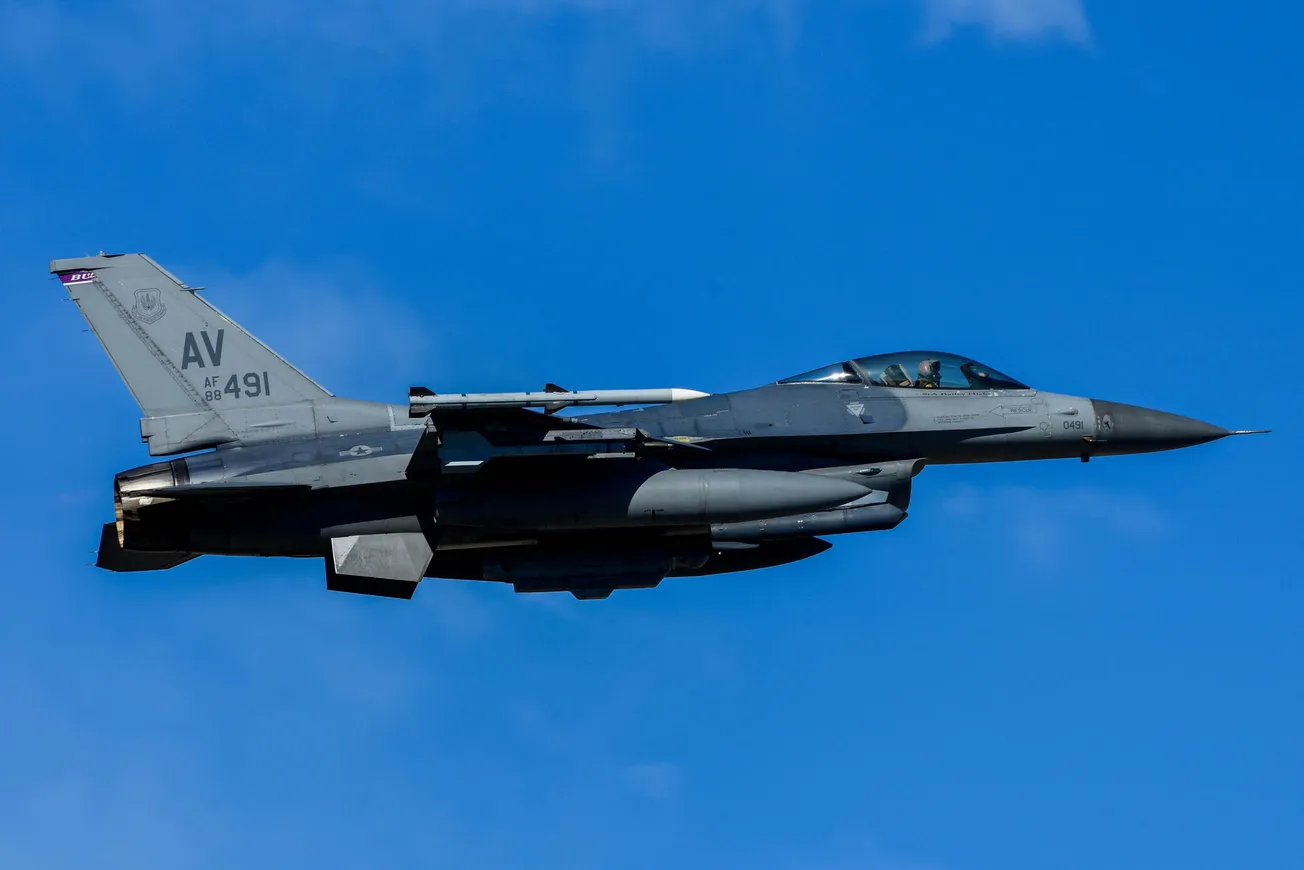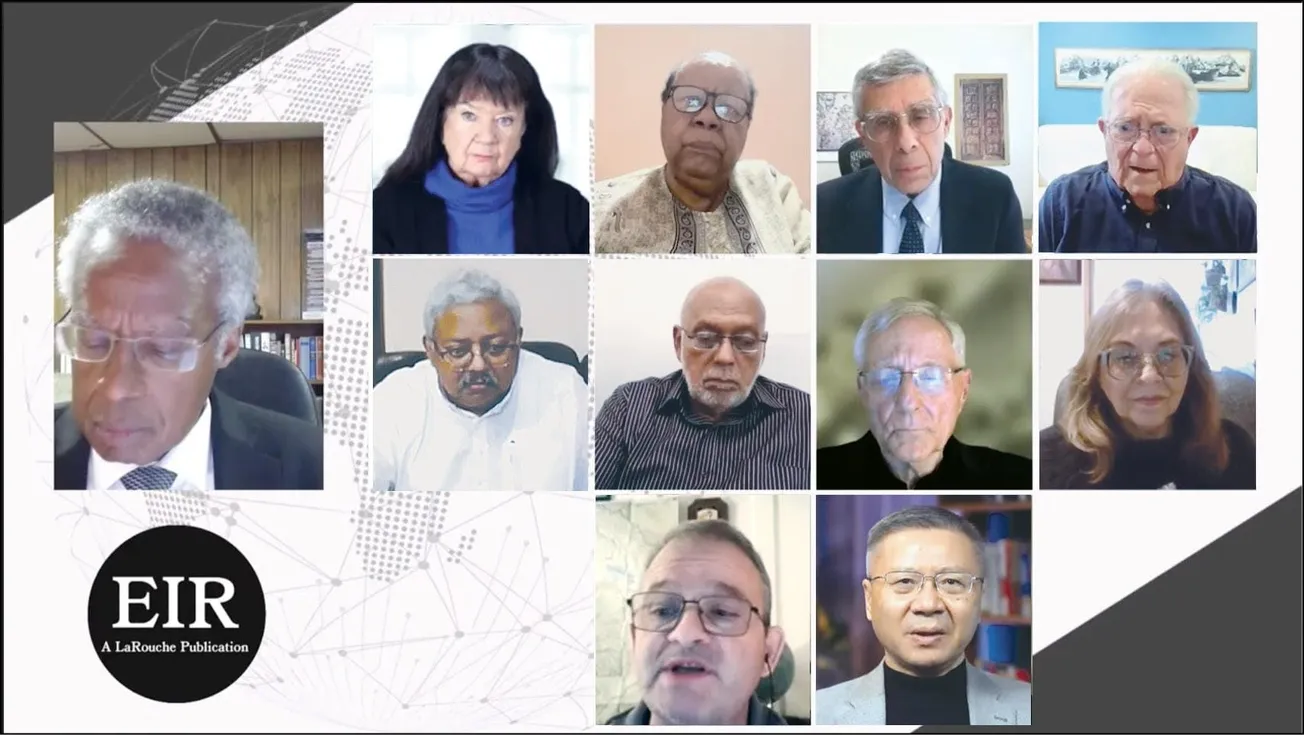The following is an edited transcript of the Oct. 16, 2024, weekly Schiller Institute dialogue with Schiller Institute founder Helga Zepp-LaRouche. Embedded links and subheads have been added. The video is available here.
Harley Schlanger: Hello and welcome to our weekly dialogue with Helga Zepp-LaRouche, the founder of the Schiller Institute. Today is Wednesday, October 16, 2024. I’m Harley Schlanger and I’ll be your host.
Today we’re going to be discussing the BRICS summit that’s taking place in less than a week, in the midst of turbulence throughout the world, and I’m going to begin with the turbulence: Two major crisis spots, in Ukraine and in Southwest Asia, which threaten to escalate to World War III, in addition to the continuing, brutal civil war in Sudan, and dangerous provocations against China.
So, let’s start with Ukraine: With all the bluster against Russian President Vladimir Putin over his alleged threats to use nuclear weapons, there’s been little mention of the NATO nuclear war-games Steadfast Noon, which began yesterday. This includes exercises in NATO countries, to simulate the deployment and use of nuclear weapons. Helga, what are your thoughts about this, and why is this significant?
Helga Zepp-LaRouche: NATO, I believe SHAPE headquarters, claimed that this is just an annual, routine maneuver. But the spokesman for the Kremlin, Dmitry Peskov—in my view absolutely correctly—said that the timing of this is inappropriate and horrible because, with a hot war going on in Ukraine, the fact that as of Oct. 14 there will be, for 15 days, maneuvers involving altogether 2,000 personnel, 13 countries, and eight major U.S. bases, where there are fighter jets and all kinds of support planes, refueling, and all kinds of other things involved, means that while they claim that there is no actual live ammunition—meaning tactical nuclear bombs onboard—obviously this is a question that nobody knows. A maneuver employing tactical nuclear weapons going on in the North Sea, going on over several NATO countries, while you have a situation where already, because of the Ukraine situation, nerves are pretty raw, I would say this is just completely reckless; it’s not necessary, unless you really want to provoke the situation, and really portray an image of schrecklichkeit [pure horror]. The Russians cannot know if these planes are actually carrying live ammunition or not. It is extremely easy to go from an ongoing maneuver immediately into an actual war deployment, and that’s what the Russians have to assume, that that option exists.
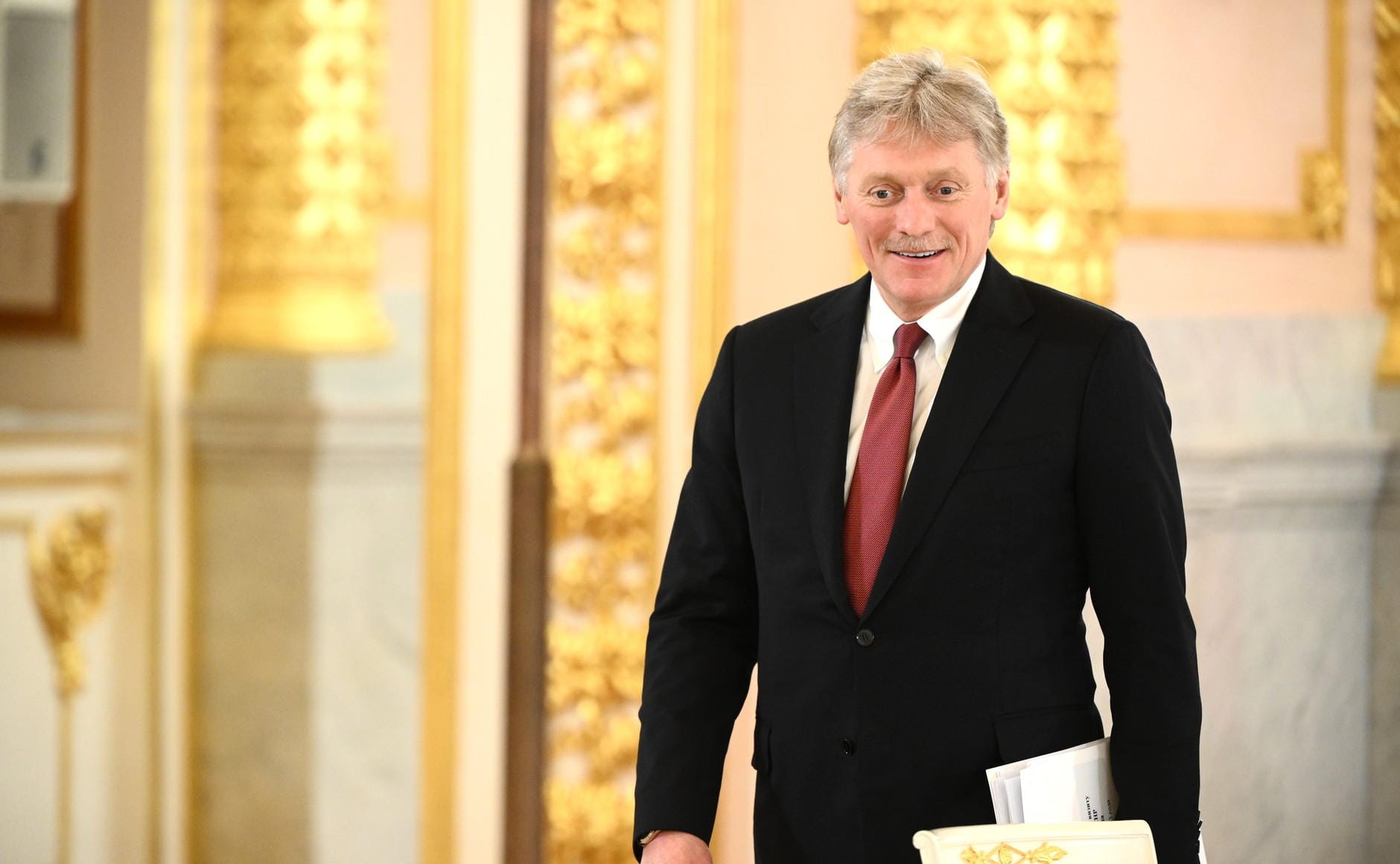
So, the minimum one can say is that this whole maneuver going on for 15 days, which started on Oct. 14, will go until the end of October, just a few days before the U.S. election. If people think about it, something could go wrong. And this is, even if an unintended war were to happen, it could lead to the extinction of civilization, because of the implications. There is a book out by Annie Jacobsen, Nuclear War: A Scenario—it just came out in German and also in French, and the original English in March. I have not yet read the book, but I have reports of it. What she apparently describes is that in the warning time, if anything goes wrong —I think she talks about 72 minutes— That even sounds like a lot of time, given the fact that launch-on-warning leaves far fewer minutes. And what she describes, according to reports I have from people who have read the book, is that once the sign is given that the war is on, the thinking time is zero, because the things that have to be done by any president or the leader of a government are so hasty that there is absolutely no time to think about it, or change something. Everything goes into an automatic routine.
This means we are sitting on an absolute powder keg on two fronts: One is the Ukraine situation, where the situation clearly is not going in the direction of what Ukrainian President Volodymyr Zelensky tried to elicit on his recent tour through European capitals, but it goes more in the direction that Russia is making steady— In other words, he was trying to convince European leaders about his so-called Victory Plan. There is no victory in sight in Ukraine. Russia is making steady, vast territorial progress. Several experts, basically, think the war is going to be over before the end of the year, and that then brings about the absolute “to be or not to be” question: Will NATO finally agree to a negotiation with Russia, that Russia can accept, a diplomatic solution? Or will there be an escalation, which then could go into a big war? That is the situation in Ukraine.
And then you have the unbelievably dangerous situation in Southwest Asia, which also could go nuclear.
So, in the context of these two actual hot situations, to have this NATO maneuver is reckless; it’s irresponsible. That makes all the more important the fact that the Japanese organization, Nihon Hidankyo, which has been fighting against the danger of nuclear war for a long time, was awarded the Nobel Peace Prize this year. And also that the Chinese government is very aggressively promoting the idea of a new security and development architecture, pretty much in line with what the Schiller Institute has been demanding for more than two years.
I really think we are heading toward a point of decision. And I can only urge you, our viewers: Join the Schiller Institute and our efforts to really put a completely different agenda, a new paradigm, on the international discussion table, because we are in absolute danger of losing everything that is humanity.
Schlanger: Helga, on the point you were just making about the potential for a Russian breakthrough in the war in Ukraine, several people wrote in regarding reports in the mainstream media of deep anxiety afflicting supporters of Ukraine in the war against Russia, and in Europe generally over the coming U.S. election. People are asking questions: “What would happen if Trump wins?” “Will the U.S. abandon Ukraine?” “Will European nations have to cover the difference in costs?” And so the question posed is, “Is there a war weariness affecting European governments and the general population?”
Zepp-LaRouche: I think so. The war weariness is, first of all, in Ukraine itself. There are many reports that the number of deserters has increased dramatically this year, and with a perspective where the people fighting on the ground— They don’t need to read the newspaper to know what their situation is, because they’re in the middle of it. But there seems to be a very widespread demoralization because Ukraine is victimized! This idea that you have to keep fighting when it’s clear there is no victory possible. I think one retired officer made the comparison that it’s as impossible for Ukraine to win against Russia as it would be for Mexico to win against the United States. And nevertheless, there are these reckless military and political leaders who demand that the fight should go on until Russia is defeated, when that is an objective impossibility. And the only victims are, really, the Ukrainian people, many of whom are being slaughtered; their country is going under in war destruction.
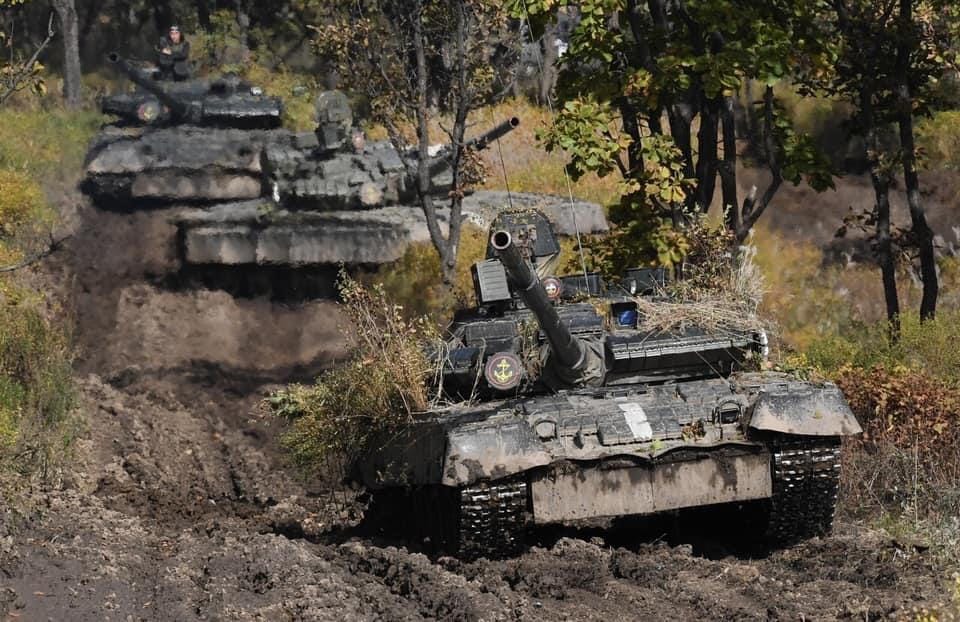
And the other major, major victim of this, naturally, is Europe. Europe is falling apart. And the danger that Europe— It does not really make a big difference who wins the U.S. election in my view because, okay, Trump has promised he would end the Ukraine war in 24 hours. And maybe he would; I think he probably would. But nobody is then asking, what is the policy of Trump in the Middle East, about which he is saying things that are absolutely unbelievable for a potential President of the United States to say.
So we need something completely— I’m not putting my eggs in the basket of either of these two candidates, because I think neither of them has said anything which would really give me confidence that they are thinking in the right direction, which has to be a new paradigm; stopping geopolitics. Get out of the Wolfowitz doctrine—which is still lingering in the background—that the United States should remain the dominant power in the world forever; that no combination of countries should be allowed to surpass the United States economically, politically, or in any other way. And as long as that is the underlying feature of the Pentagon, of the military-industrial complex, well, we really are not out of this crisis until a large part of the population of the United States and Europe assert their desire to keep peace! And that means cooperation instead of confrontation. That is what one can say about this situation.
Schlanger: Last week we spoke about the presentation given at the International Peace Coalition on Friday, Oct. 11, by Scott Ritter, warning of the potential for an Iranian nuclear strike on Israel. Now, we have a question: “Is the recent announcement of the U.S. missile defense system and troops sent to Israel a sign of an expected nuclear strike by Iran?” and “Does it show that the U.S. is fully committed to defending Israel?”
Zepp-LaRouche: We are seeing a tragedy without parallel. What is happening very clearly is that this ridiculous letter, which was written by Secretary of State Antony Blinken and Secretary of Defense Lloyd Austin to Israel, that they should, within 30 days, improve the humanitarian situation in Gaza, that is the biggest joke—I mean, it’s not a joke, it’s a horror story! Right now, the Israelis have given an ultimatum to anywhere between 300,000 to 400,000 Palestinians in Gaza to evacuate, or else they will be treated as terrorists—which means they can be shot and starved, or whatever. And a similar thing is happening in respect to Lebanon, where one-quarter of the country is already under IDF control. This goes along with unbelievable consequences: The murdering of people is happening before the world’s eyes. And for the Palestinians, it is an absolute tragedy; for the people in Lebanon, it is equally a tragedy, because Lebanon is step by step being turned into a new Gaza situation.
So it is horrible for all the people involved. Many of them are losing their lives. But it is even much, much more beyond that: a tragedy of all of humanity, because of the fact that the world public knows about it, and then sees the behavior of certain U.S. and European leaders who, in a shameless way, turn the truth around. And always, when they report about it in the media, they always say it was a Lebanese attack on Israel which forced Israel into self-defense—a complete misconstruction of the facts, and the sequence and chronology.
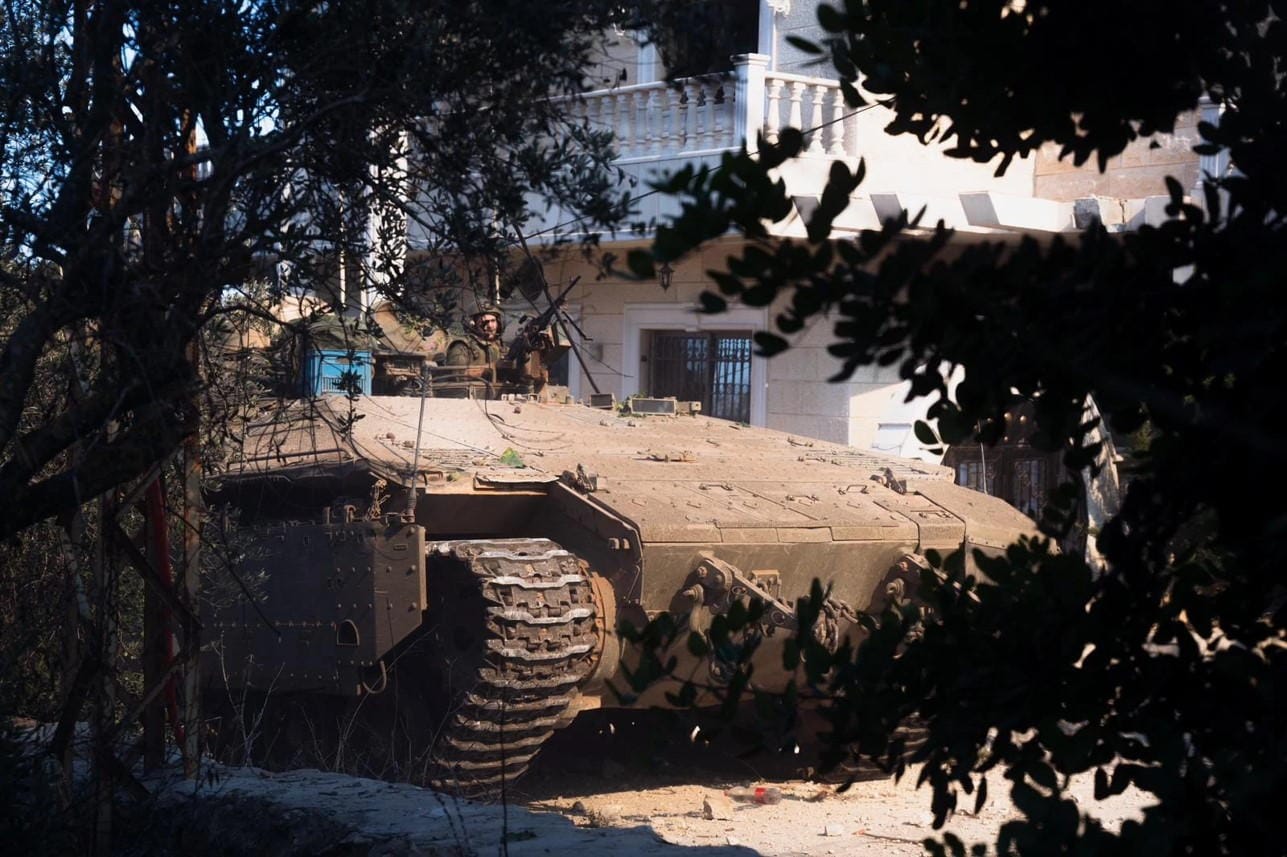
That is being observed by the whole world—by the Islamic world, by the Global Majority—and one additional effect of all of this will be the loss of moral image; the stain on the consciousness of the people in the West who are condoning this. I don’t think that will go away. I cannot imagine how the world will ever go back into any kind of pre-war situation, because this condoning is what will be judged by history and by the world public. So, I can only say, we have to move the whole world into a new paradigm, because I don’t think that any one of these crises—either Ukraine or Southwest Asia—can just be solved by the forces in the region. This is because the trans-Atlantic world is clearly reacting to the rise of China and a multipolar world. And one has to overcome this geopolitical thinking, or else there won’t be a way out.
Schlanger: One astute observer picked up on the question of giving Israel 30 days to comply with humanitarian aid, and writes that to him, “this is support for slow-motion genocide.” And he asks: “What can be done to force a response from Western governments? Is there anything that can be done?” And here, it might be worthwhile to mention that the International Peace Coalition will be having the Zoom call as usual this Friday, Oct. 18, at 11 a.m. ET (5 p.m. CET).
Zepp-LaRouche: There is only one power in the world which can stop this, and that is the United States. If the United States were to assert its power in terms of stopping weapons deliveries, holding back financial support, the wars could be stopped immediately. It might be difficult, but it could be done.
The fact is that there is a place where there is leverage: that is the people of the United States, who must speak out more clearly, and assert pressure from within the United States. The countries of the Global South, who are the vast majority of the human population, are getting more active all the time. They have to step forward even more, because we have an incredible crisis: The UN, in its present form, does not function. The UN Security Council is blocked all the time by the veto of one of the permanent members of the UN Security Council, which means, de facto, when this conflict involves one of them, namely the United States (and naturally, in the shadows, Great Britain), then there is no solution.
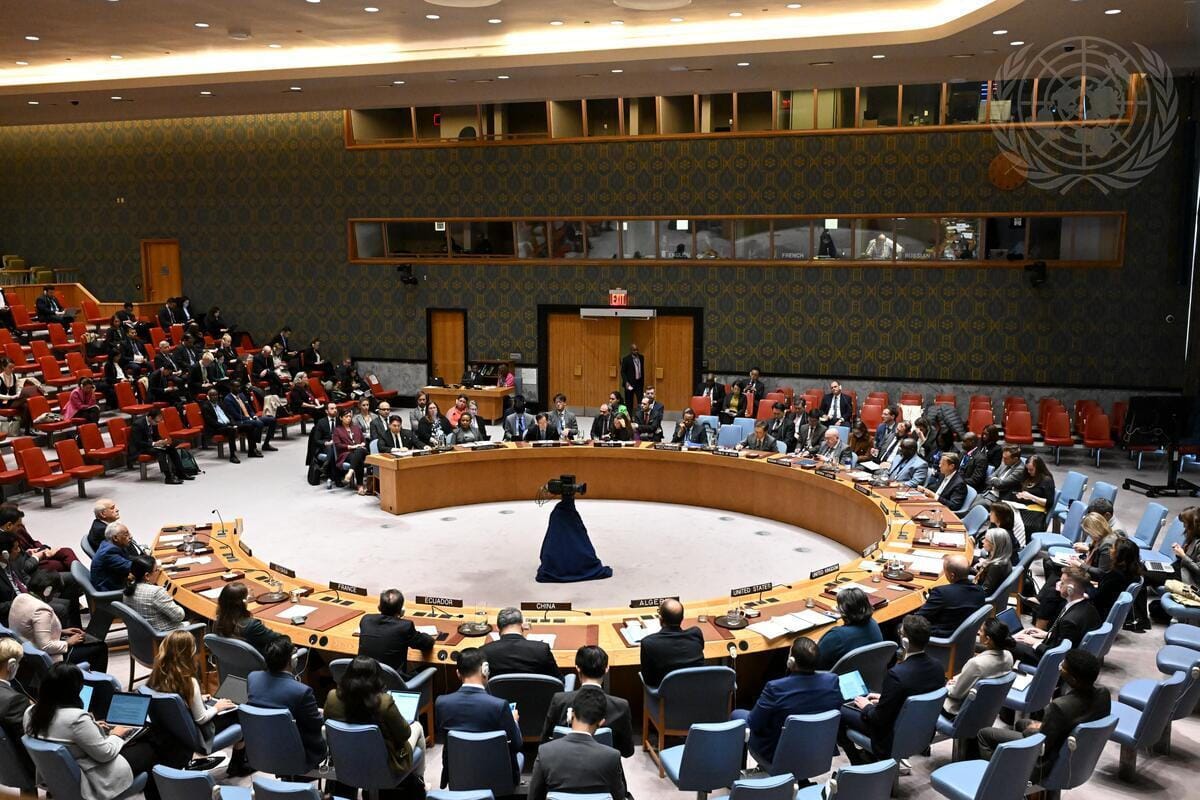
So there is a real crisis of humanity. And I think people had better wake up to this fact and realize that we have to create maybe a new institution. The BRICS is emerging as quite an important counterweight to all of this. They will have their summit in about a week, Oct. 22-24, and that is, hopefully, going to be one of the places where some real alternative is going to be proposed. But nothing prevents the people from Western Europe—or Europe and the United States—from taking responsibility to really mobilize and assert pressure on their governments to stop this.
Schlanger: We have a question from Magna H., from Norway, I believe, who asks: “Why is it that Western elites are so unable to recognize their defeat in the confrontation with the rest of the world, and their neocolonialist agenda?”
Zepp-LaRouche: I have asked myself that question many times, because it is so obvious that all of their policies have failed! Look at what happened after the end of the Cold War, where disregarded were the warnings of Pope John Paul II, who said the West should not conclude from the disintegration of the Soviet Union that they had “won,” because they had not won. And he talked about the “structures of sin,” in both East and West, and he said, look at the condition of the developing countries to see that the West also has structures of sin.
But what happened was the West declared the “end of history.” Francis Fukuyama said that, and they developed a triumphalism, as if they would have won the Cold War, and they had not! And out of that triumphalism, they concluded that the unipolar world would dominate the globe; that the “rules-based order” would force every country on the planet to adopt the Western liberal model of democracy—and you see where this has brought us. You see what the interventionist wars following Sept. 11 have resulted in. Has the U.S. influence increased? No! Has the standing of Europe increased? No! And it is very clear that the Western policies of antagonizing the vast majority of the world by pushing these policies, now leads to a situation where these countries have turned away from the West; but the Western elites are still sticking to the same policies which are destroying Europe. For example: Germany is totally destroyed. There are many reports about medium-size firms leaving; going to the United States to invest there, or going to China, or closing down, or going to Switzerland—but leaving Germany. This will lead to a real social collapse in the short term—which is already ongoing—including cuts in the social system, which will cause instability and unrest in the country.
These people, they keep doing what they’re doing, despite the fact that voters in recent elections clearly signaled that they don’t agree: This happened in France; it happened in four elections in Germany; the European Parliament election; and then three state elections in East Germany. But the elites, the so-called establishments, they do not recognize that they are undoing their countries, or if they do realize it, they couldn’t care less. This is really an incredible moral crisis.
So, I can only appeal to voters to really become state citizens. Mobilize yourselves. On Fridays, the IPC meeting is one important meeting point, where many forces of the peace movement and other organizations are meeting every week now, for well over a year. And for sure, like every week, we will deploy some proposals for what should be done to affect the situation. But it really requires people to rethink. People who are now disqualifying themselves as leaders, they can never be trusted again!
Schlanger: We have a question, or a statement from Amanda, who says: “I can’t believe Israel is now getting away with attacking NATO or UNIFIL peacekeepers. Israeli armored vehicles smashed their way through the gate of the UNIFIL base. NATOs reaction? Nothing!”
Someone else writes in and says that one commentator said that if Israel is firing at UN peacekeepers, the UN can fire back. Do you think there’s a possibility that this would force the NATO countries to respond more directly?
Zepp-LaRouche: I can only say that I listened to a commentary by a leading CSU [Germany’s Christian Democracy] politician, Thomas Erndl, on Deutschlandfunk. It was unbelievable; as if he was in a parallel universe. Completely taking the side of Israel; completely blaming everybody else—including the peacekeeping troops. And that is, unfortunately, really the mindset of NATO right now.
So, it does require action on another level, and I can only repeat myself, that the idea to have a completely different approach—like in the Peace of Westphalia—in my view that is the only way we will avoid World War III! And I’m very interested that from China, the individual who is the head of Foreign Ministry’s disarmament section, Sun Xiaobo, he made a proposal just two days ago—very far-reaching—reiterating the need for a new security architecture which must take into account the interests of every country—because peace is indivisible, and if one country is in trouble, it affects the whole world.
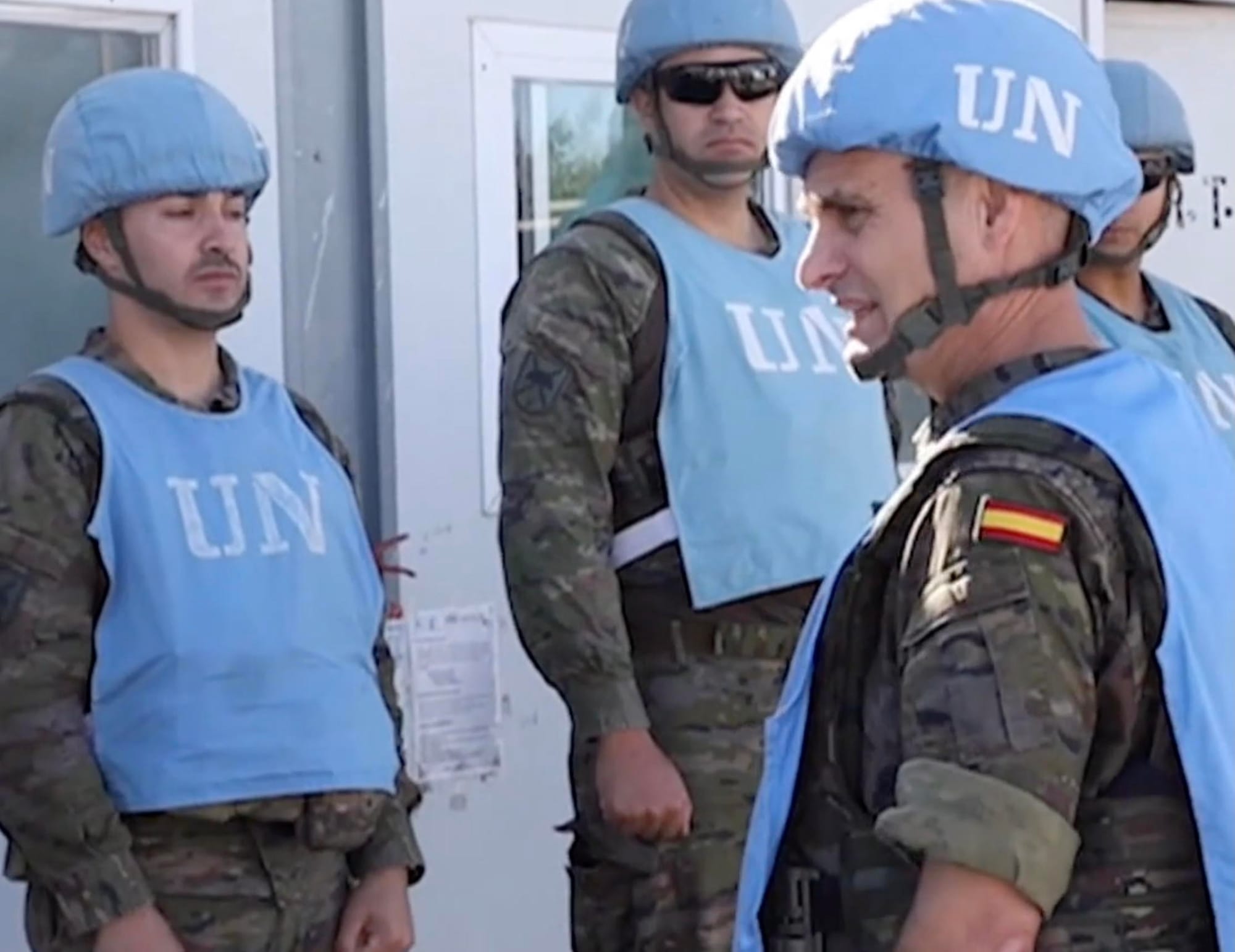
These are the kinds of discussions we have to have, and I would encourage, if you are a student, or a professor, or an honest journalist (even if that may be a dying out species these days), or have any other platform, internet, lists from friends and colleagues, chat groups, whatever: start to discuss the idea that we need to have a different order, in terms of the security architecture of the whole world, because we are, after all, the only intelligent, creative species in the universe—at least known species. There may be other intelligent species that have creativity; they may exist, but we don’t know about them, so therefore, we have to assume we are the only ones acting on the scene.
And if the present security order, the present structure, the present set-up among nations is possibly dooming us all to vanish in a nuclear war and the following nuclear winter, should we not be able to think what we should do differently—while we still have time? And for me, that is the burning question, which I would really like more people to start to discuss. We had one conference about this topic, which involved a university in Nicaragua, and I still believe that think tanks, universities, other social groupings—they should start to discuss this! That if you are bound in a security structure which does not allow your survival if anything goes wrong, that cannot be the structure which is good for you!
So we have the right, and the actual duty, to think, how do we get out of this situation?
Schlanger: You mentioned before the BRICS summit that comes up starting Oct. 22. We have a few questions about that. One from Susie in New Mexico, who started by saying, “Words cannot express my appreciation for your leadership and ceaseless efforts in preventing World War III, and the realization of a peaceful, fair and prosperous world. I am very worried that the hegemonic world powers, for example, the United States, will try to sabotage the upcoming BRICS summit in Kazan, Russia. Do you think they can, or will?”
And then a second question on this: “How do you evaluate the chances of the BRICS to succeed in transforming the world from a neocolonial status, to one with justice for all nations and people?”
Zepp-LaRouche: There is already an effort to create maximum trouble for all the member states of the BRICS. There are credit demands on several countries, or difficulties in the financial way they are operating, which is designed to cause disunity. Obviously, the idea of creating a new payments system, which was discussed by President Putin with his security team two weeks ago, is going to be on the agenda. There are very contradictory reports about what is to be expected in Kazan.
I would assume something big will be pulled out of the hat, so to speak—and it may not be the BRICS. It may be what the former deputy head of the New Development Bank, Paulo Nogueira Batista, had mentioned on several occasions, that it may be a subgroup of the BRICS that will work on that. I’m not in these discussions, so I cannot be sure. I know there is a lot of tension around it.
I can only tell you, for sure, what is not a good idea, and that is what Donald Trump just said: He said, he would impose 100% tariffs on every country that is going in the direction of de-dollarization. Now, that’s not a very clever economic proposal, because that would mean that the United States would have very few countries to even have trade with. And it’s a completely impractical thing. The more intelligent thing to say would be: OK, our financial system is in serious trouble, or our physical economy is absolutely collapsing. Look at the inability of the United States to deal with the victims of the recent hurricanes. Let’s build our infrastructure! Let’s work with the new, emerging system to join their new credit facility and start to invest again in physical production, infrastructure, in innovation, in R&D—basically what China is doing. Then there would be a chance to get out of trouble.
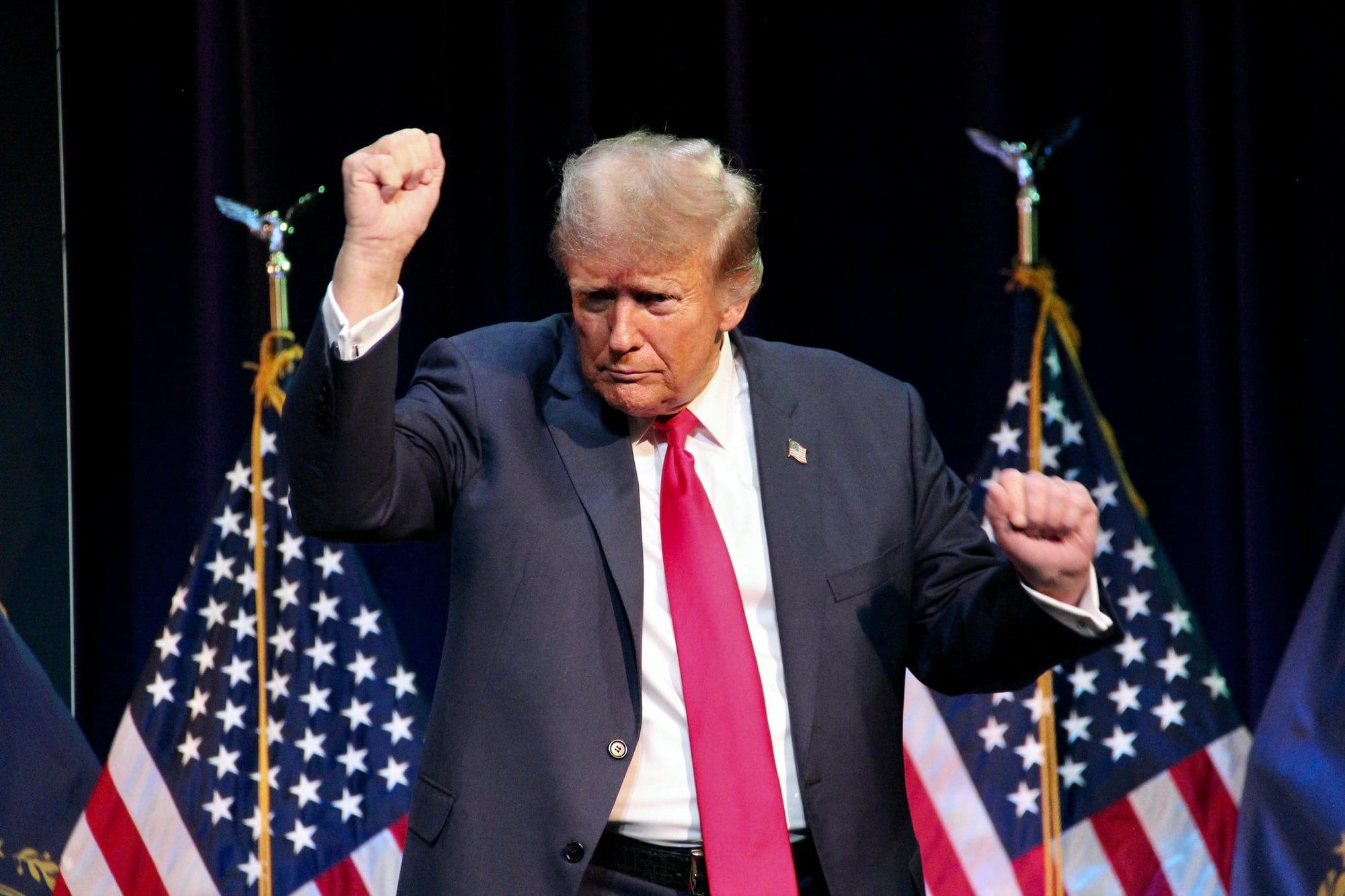
But we will definitely go into a stormy period. We are so close to World War III. But, on the other side, if any combination of countries can pull the world out of this crisis, it’s going to be the BRICS. And I’m pretty sure the world is going to be shocked with some surprises next week, because the leaders who are coming together there have proven that they’re quite responsible people, and there is a chance that we may survive this ordeal—but it’s not secure at all.
Schlanger: I have one more thing for you from a supporter from Germany, who wrote about the future of Germany in Europe. He says: “I’m retired from the auto industry. I’ve watched the Green assault on our industry in horror. After the fiasco of the attempt to outlaw the combustion engines, they’re now pushing high tariffs on electric autos from China. The German people aren’t stupid. Keep up your fight. I think people are starting to pay attention.”
Zepp-LaRouche: I will follow your advice. I will keep up the fight. The auto industry, in my view, is a little bit late, but finally they are coming out, and all of them—Mercedes, BMW, Audi, VW—they all came out strongly opposing the EU policy of imposing these tariffs on EVs from China. Germany did not make a credible fight, because if they knew this vote was coming up, and that the EU would have this policy of imposing these tariffs, if they would have been seriously trying to avoid it, they would have put their feelers out beforehand to Italy, to other countries, and that did not happen.
We discussed it among ourselves, with our colleagues from different countries. This was a show and not meant seriously, because this present government is looking at the whole situation where Germany is falling apart without correcting it; without doing anything about it. And so the Chinese response will be counter tariffs. But again, it is the fight for the people of Germany to not only get rid of this government, but if you listen to what some of the opposition leaders from the CDU/CSU are saying, that will not get Germany in a much better or, actually, in a worse situation, if they do what they’re talking about.
We need to have a real mobilization in Germany for Germany to go back to its best traditions! We have been taken over by a combination of neocons, neoliberals, both in terms of economics, and in terms of the cultural field. The Asians are smart, and they went back to their own historic traditions of sometimes as much as 5,000 years ago, and they take their strength from the greatest culture they have produced in millennia. We, in Germany, at one time had, in the area of Classical music, Classical poetry, among the best! In Classical music, I would even say the best performance of our composers, from Bach through Beethoven, Schumann, Schubert, Brahms: I mean, this is a treasure! And have you ever heard Ursula von der Leyen or Olaf Scholz or any of these people talk about the treasures of European culture, and especially of German culture? I have not. And if you can, please show me that they have some understanding of why the Lied [art songs—ed.] are important: the Schubert songs or Schumann songs, or Brahms, or Mozart or Beethoven. These are pearls, unmatched by anything else in the world! And we have let this almost totally disappear! There are no longer any performances, supposedly because audiences don’t want this music—which I don’t think is true. It has been designed to bring down the level of the culture, and the taste of the population. We are ruled by an oligarchical system committed to degrading all of us!
So, let’s fight for what Germany has produced: We had Nicholas of Cusa, we had Leibniz, we had Schiller, we had Beethoven. We had so many inventors and great minds, and we should not allow ourselves to be trampled upon, as it is happening right now. But we need a renaissance of the best Germany has ever produced, and then, I believe, there is power—which is sleeping right now in the German people—but which can be awakened to the highest ideal of humanism. And that is what we need, to work together with other countries, in a chorus of nations for a better future.
Schlanger: Toward that end, we do have the International Peace Coalition meeting again this Friday: 11 a.m. Eastern Time, 5 p.m. Central European Time.
And then, Helga, maybe you could say something about the Oct. 26 rally and concert of the Jose Vega and Diane Sare Peace Fund, which will be a campaign event for New York congressional candidate Jose Vega (CD15, the Bronx) and senate candidate Diane Sare in New York. That’s sort of what you’re talking about as being necessary.
Zepp-LaRouche: Yes. This is an extraordinary event planned for Oct. 26, Saturday, in New York, and we already have an amazing number of speakers there. You will find the names on their website. We will put the link underneath this program. It includes such people as Col. (ret.) Lawrence Wilkerson, and Ray McGovern, Garland Nixon, and many other outstanding patriots of the United States. And then we will have musical contributions from various countries, a lot devoted to the issue of peace. And we are trying to have people from around the world, maybe even making sister events. We have choruses in Africa; we have other people who have proposed that they participate by having sister events in different countries. This can become a model of uniting the international peace movement in ways by bringing out the beauty of the culture we are fighting for as a source of strength.
You should absolutely register. For international guests, it’s absolutely free. I don’t know what the modalities are on the ground, that may be different, but that’s definitely an event which is the most powerful intervention in the election campaign—and on the issue of war and peace.
Schlanger: Well, Helga, thank you for joining us today, and I know I’ll see you on Friday, and probably also on Oct. 26!
Zepp-LaRouche: I’m looking forward to it, and you as well.


